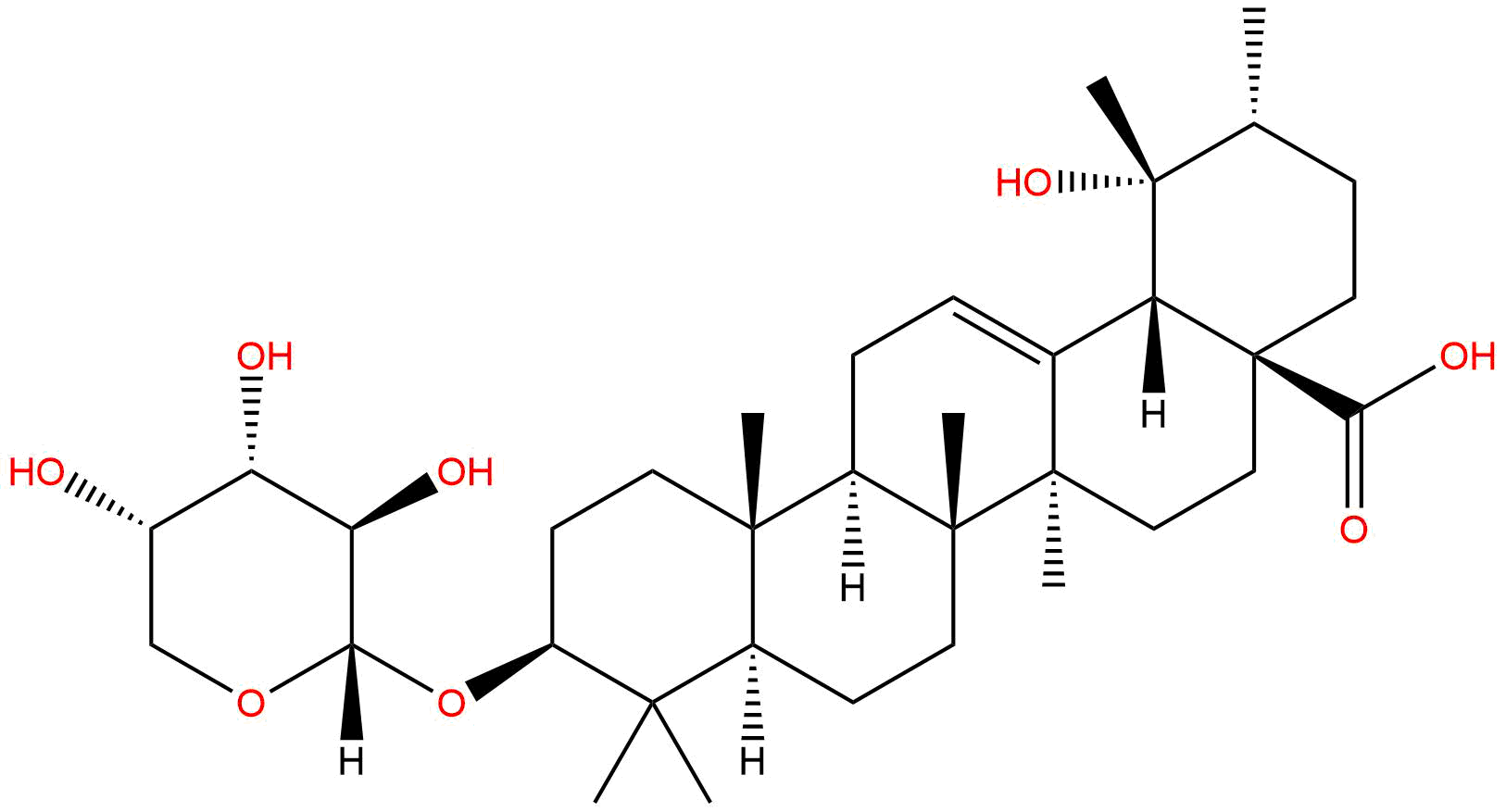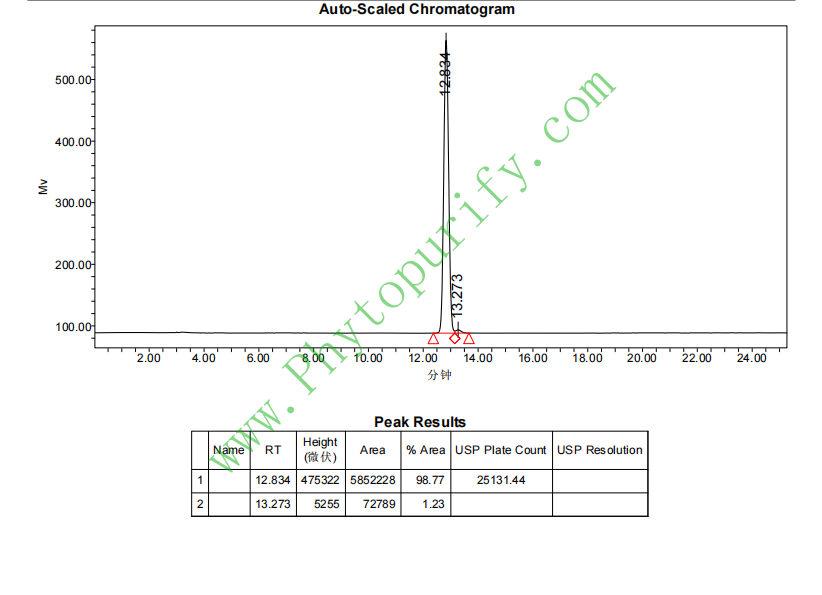
Ziyuglycoside IICAS No.:35286-59-0
|
||||||||||
 |
|
|
||||||||

| Catalogue No.: | BP1468 |
| Formula: | C35H56O8 |
| Mol Weight: | 604.825 |
Synonym name: Gouguside 1
Catalogue No.: BP1468
Cas No.: 35286-59-0
Formula: C35H56O8
Mol Weight: 604.825
Botanical Source: Ilex cornuta and Sanguisorba officinalis
Purity: 95%~99%
Analysis Method: HPLC-DAD or/and HPLC-ELSD
Identification Method: Mass, NMR
Packing: Brown vial or HDPE plastic bottle
Can be supplied from milligrams to grams.
For Reference Standard and R&D, Not for Human Use Directly.
Inquire for bulk scale.
Description:
Ziyuglycoside II has a wide range of clinical applications including hemostasis, antibiosis, anti-inflammation and anti-oxidation. Ziyuglycoside II has inhibitory effect on the growth of MDA-MB-435 cells, it induces cell cycle arrest and apoptosis through activation of ROS/JNK pathway in human breast cancer cells.Ziyuglycoside II methyl ester possess improved anti-diabetic properties, and has hepato-renal protective activities in type 2 diabetes.
References:
Toxicol Lett. 2014 May 16;227(1):65-73.
Ziyuglycoside II induces cell cycle arrest and apoptosis through activation of ROS/JNK pathway in human breast cancer cells.
Ziyuglycoside II, a triterpenoid saponin compound extracted from Sanguisorba officinalis L., has been reported to have a wide range of clinical applications including anti-cancer effect. In this study, the anti-proliferative effect of Ziyuglycoside II in two classic human breast cancer cell lines, MCF-7 and MDA-MB-231, was extensively investigated.
METHODS AND RESULTS:
Our study indicated that Ziyuglycoside II could effectively induce G2/M phase arrest and apoptosis in both cell lines. Cell cycle blocking was associated with the down-regulation of Cdc25C, Cdc2, cyclin A and cyclin B1 as well as the up-regulation of p21/WAF1, phospho-Cdc25C and phospho-Cdc2. Ziyuglycoside II treatment also induced reactive oxygen species (ROS) production and apoptosis by activating the extrinsic/Fas/FasL pathway as well as the intrinsic/mitochondrial pathway. More importantly, the c-Jun NH2-terminal kinase (JNK), a downstream target of ROS, was found to be a critical mediator of Ziyuglycoside II-induced cell apoptosis. Further knockdown of JNK by siRNA could inhibit Ziyuglycoside II-mediated apoptosis with attenuating the up-regulation of Bax and Fas/FasL as well as the down-regulation of Bcl-2. Taken together, the cell death of breast cancer cells in response to Ziyuglycoside II was dependent upon cell cycle arrest and cell apoptosis via a ROS-dependent JNK activation pathway.
CONCLUSIONS:
Our findings may significantly contribute to the understanding of the anti-proliferative effect of Ziyuglycoside II, in particular to breast carcinoma and provide novel insights into the potential application of such compound in breast cancer therapy.
Nutrients. 2015 Jul 7;7(7):5469-83.
Anti-Diabetic and Hepato-Renal Protective Effects of Ziyuglycoside II Methyl Ester in Type 2 Diabetic Mice.
Type 2 diabetes is a metabolic disorder caused by abnormal carbohydrate metabolism, and closely associated with abnormal lipid metabolism and hepato-renal dysfunction. This study investigated the anti-diabetic and hepato-renal protective properties of ziyuglycoside I (ZG01) derivative on type 2 diabetes.
METHODS AND RESULTS:
ZG01 was isolated from roots of Sanguisorba officinalis and chemically modified by deglycosylation and esterification to obtained Ziyuglycoside II methyl ester (ZG02-ME). Here, we showed that ZG02-ME has stronger anti-diabetic activity than the original compound (ZG01) through decreasing blood glucose, glycated hemoglobin (HbA1c), and insulin levels in a mouse model of type 2 diabetes (db/db mice). We further found that ZG02-ME treatment effectively ameliorated serum insulin, leptin and C-peptide levels, which are key metabolic hormones, in db/db mice. In addition, we showed that elevated basal blood lipid levels were decreased by ZG02-ME treatment in db/db mice. Furthermore, treatment of ZG02-ME significantly decreased serum AST, ALT, BUN, creatinine, and liver lipid peroxidation in db/db mice.
CONCLUSIONS:
These results demonstrated that compared to ZG01, chemically modified ZG02-ME possess improved anti-diabetic properties, and has hepato-renal protective activities in type 2 diabetes.
HPLC of Ziyuglycoside II
